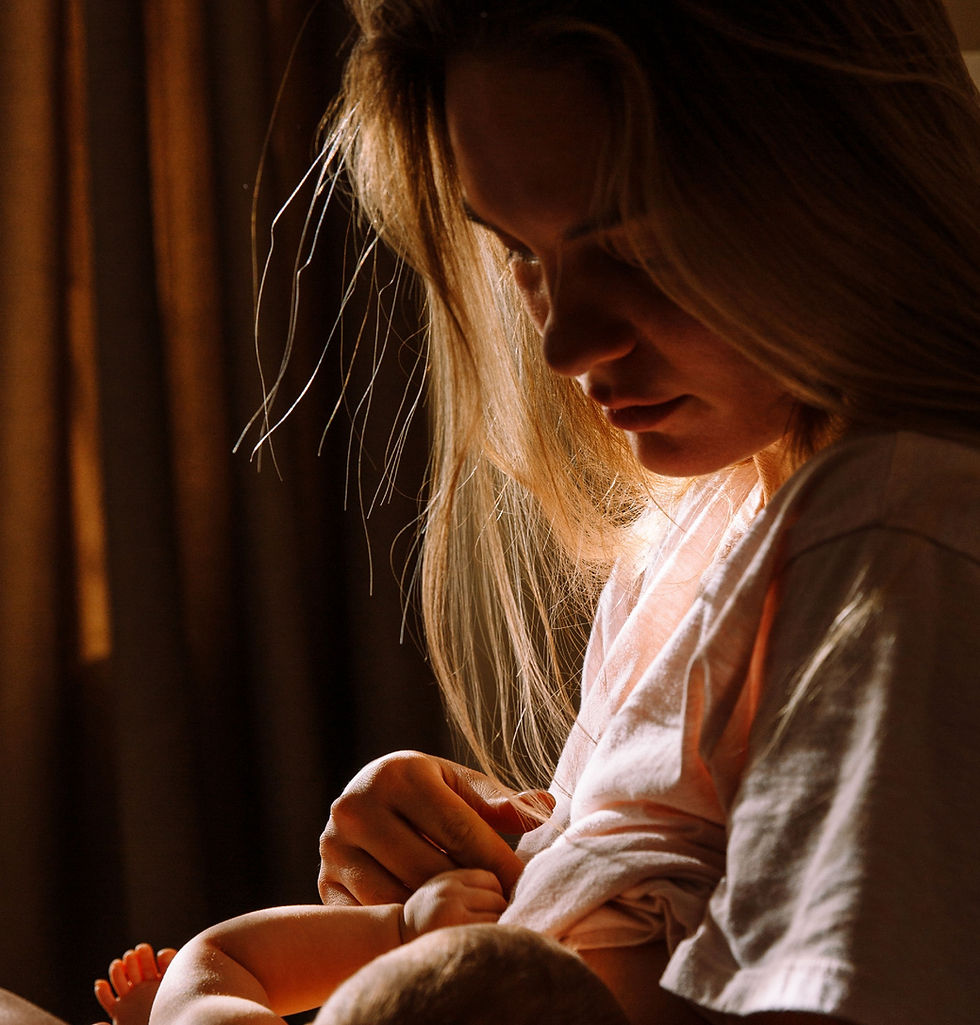You Are Not Alone: Coping With Postpartum Depression in Motherhood
- Rochelle Kaikai

- Feb 12, 2024
- 2 min read

Postpartum depression (PPD) is a common experience for many new moms. It is estimated approximately 1 in 5 moms experience PPD. Symptoms of PPD often go unrecognized, as many chalk it up to the challenges of being a new parent. Symptoms can begin in pregnancy or show up in the first year after giving birth. Research has shown that the mental health of a mom impacts not only her own wellbeing, but also that of the whole family. It is crucial for society to support moms in pregnancy and postpartum.
Understanding Postpartum Depression
PPD symptoms can range from being mild to severe. Common symptoms may include a generalized feeling of sadness, anger, irritability, poor concentration, frequent crying, feeling hopeless or overwhelmed, changes in appetite or sleep, inability to bond with the baby, and thoughts of harm to self or others. Every mom’s experience of PPD is different and not all of these symptoms may occur. When a mom is experiencing PPD it may be difficult for her to carry out tasks throughout the day. PPD can impact a mom’s emotions, behaviours, and thoughts.
Impact on Women's Mental Health
If left untreated, PPD and other perinatal mood and anxiety disorders can develop into long lasting mental health conditions. Seeking support as soon as possible is very important. Treatment for PPD may include psychotherapy or medication, as well as a deeper look into the self-care routines of the mom. A therapist who specializes in perinatal mental health can support moms as they navigate the changes that come along with having children. Moms often put their own needs last to care for everyone else. It is important that communities support mothers in pregnancy and postpartum so they too can live well.
Seeking Professional Help in Pregnancy & Postpartum
Having support is an important factor in recovery from PPD. Therapists who specialize in supporting parents in pregnancy and postpartum can offer a safe space for moms to share their experiences and learn helpful tools to cope with PPD. Being a parent is beautiful but challenging. Having a place to explore both sides of motherhood can help moms navigate change and prioritize their own wellbeing.
Tips for Partners and Loved Ones
If you know a mom who may be experiencing PPD it is important to offer support as they recover. Support can involve educating yourself about the signs and symptoms of PPD, connecting her to resources, offering help with household tasks and childcare so the mom can rest, and being a non-judgmental listening ear. If you are also having a difficult time coping, you can reach out to a therapist as well. PPD can impact both moms and dads. As a collective it is our responsibility to look out for moms and ensure they are getting the support they need.
Rochelle Kaikai, MSW, RSW, PMH-C
226-400-8910 (Serving KW & Ontario)
.webp)



Comments